With fans of social media followers buying hoodies, tees and tracks from their icons, will it be long before the content creators-driven merchandise industry rivals top fashion brands?
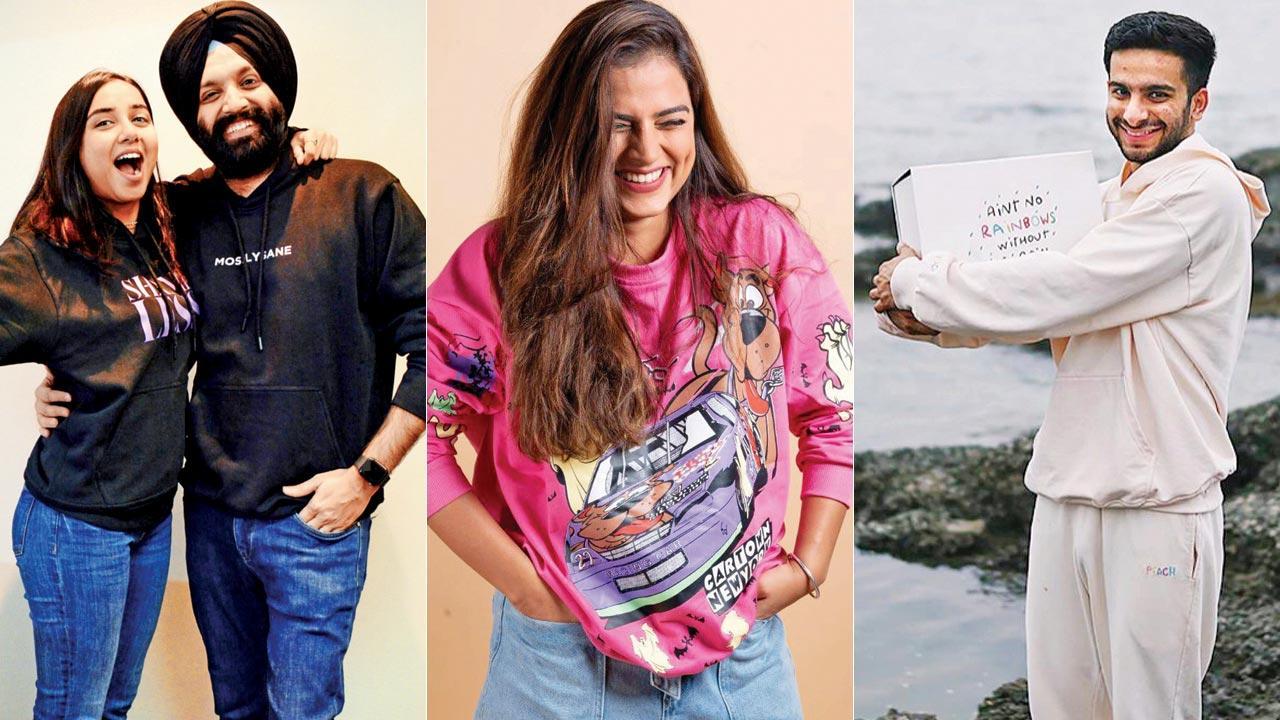
Prajakta Koli and Gurpreet singh. Pic/Sameer Markande; Aanchal Agrawal and Vishnu Kaushal
In June 2021, when actor, creator and influencer Prajakta Koli, also known as Mostly Sane, launched her line of merchandise, including tees and sweatshirts, she didn’t expect it to yield much. “I had done this before, and the last time around, I didn’t feel that the merch was a reflection of me. My team and I had also been wondering if we were there yet… you know, at a point to create merch. Then, we realised we may never be as successful as we want, so let’s do it anyway.”
ADVERTISEMENT
Gurpreet Singh, COO and co-founder of One Digital Entertainment, the firm that handles Koli’s work, is also behind The MerchBay, India’s first creator-driven merchandise marketplace. He says, “We are also new at it. The market itself is at an early stage of growth. What we didn’t anticipate was that the server would hang because so many of her fans wanted to buy. Our Instagram is full of comments like ‘my exams got over today, and my parents have promised me Mostly Sane merch if I do well’.”
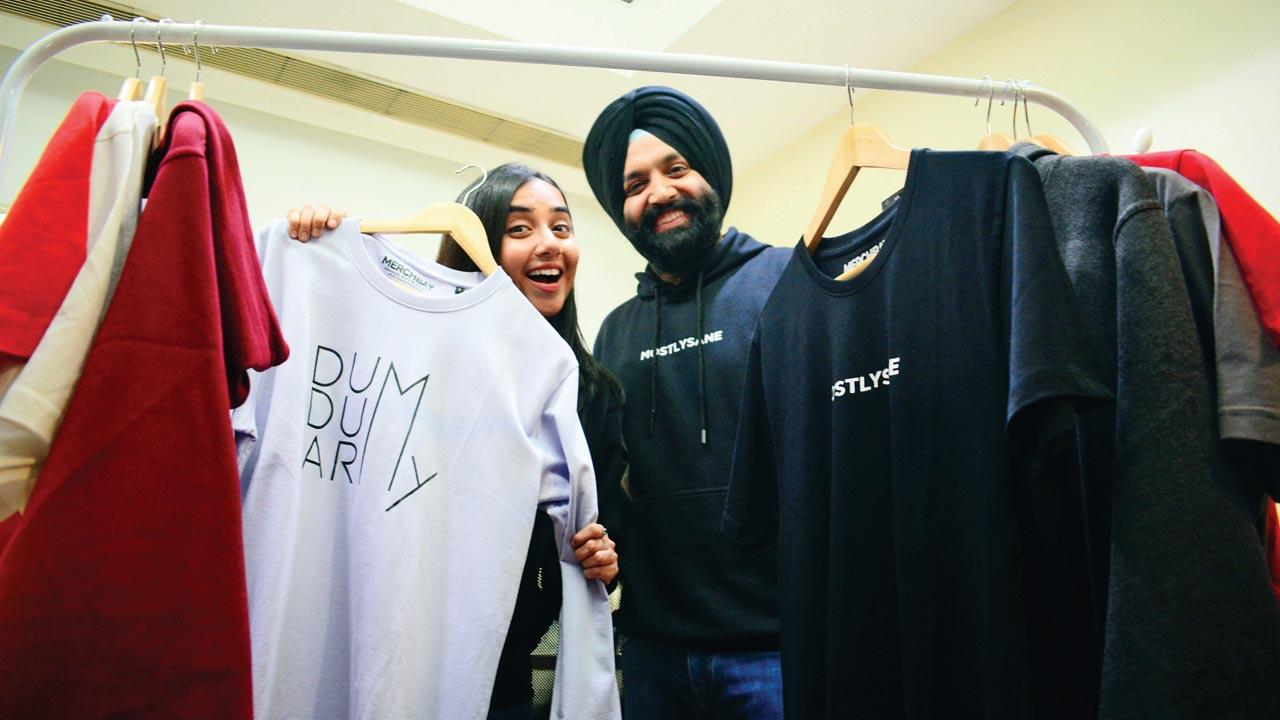 Prajakta Koli, actor-influencer and Gurpreet Singh, The MerchBay
Prajakta Koli, actor-influencer and Gurpreet Singh, The MerchBay
Last week, Koli became India’s first UN Development Programme (UNDP) Youth Climate Champion following her contribution towards mental health, women’s rights and girl child education through global social campaigns. She will be expected to interact with Indian youth on ideas to mitigate the climate crisis.
Internationally, the creator merchandise market has been growing, seeing a specific surge during the pandemic. TikTok star Larray has a line of merch called Girlies XO, and YouTube king David Dobrik launched Clickbait merch. Marketing icons, the Kardashians, have turned merchandising into a million dollar business. In India, the market is still coming into its own. Creators here doing their own merch include Mr Faisu or Faisal Shaikh and Juhi Godambe. Fashion parade handle Diet Sabya has also joined in. Mumbikar Nikhil, nicknamed YouTube ka Salman Khan, with 3.69 million YouTube subscribers, has launched LabelMN, on Shopify.
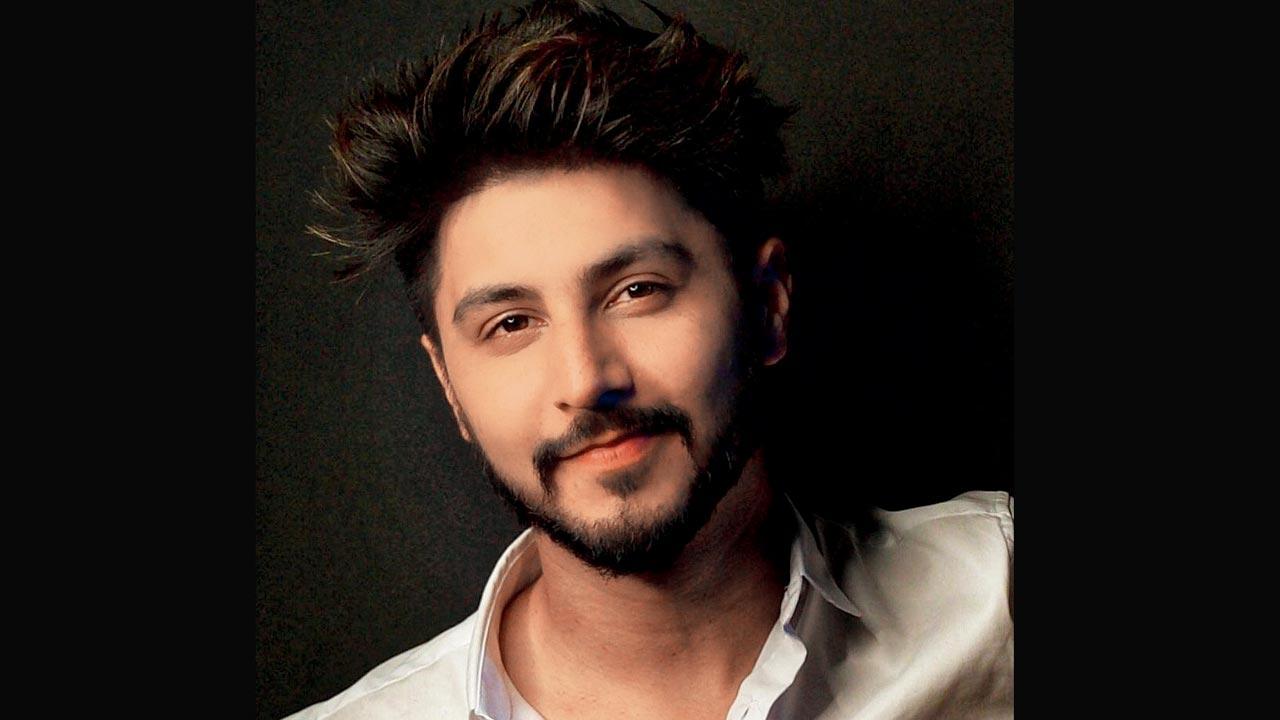 Arjuna Harjai
Arjuna Harjai
Arjuna Harjai
City: Mumbai
Followers: 358k on Instagram
Merch Line: Arjuna, which includes key chains, mugs, and hoodies
Koli, who was once known for her comedy videos, and now is a Netflix favourite with the show Mismatched, could be the most popular creator in the merchandising game right now. Her 4.6 million followers have lapped up her Mostly Sane and Dum Dum Army hoodies, and Shameless tees, which were launched on October 10 to mark World Mental Health Day. These are a spin-off of the conversation she launched six years ago around body shaming and online bullying. Shameless had emerged as part of her campaign #iPledgeToBeMe on World Mental Health Day in 2016. “I am not a designer but I had a thought, and my team got it bang on! For me, it’s about branching out, creating a community and accelerating the conversations I have through my content. And that includes talking about body positivity through the Shame Less merch. We are on a learning curve, and we will take it as it comes.” Singh adds, “At One Digital, the aim was to find verticals for our creators to help them diversify their revenue source, and build engagement with fans. We were deliberating if we should outsource the manufacturing, but because we wanted to control the quality, we launched The MerchBay, which is an end-to-end company. I think merch hasn’t worked before because of low quality. It was important that we upgrade.”
One of the other problems with merchandising, Singh says, is the returns due to sizing problems, and the fact that if it didn’t work out, companies would be left with unsold stock. “We also had to go through a hit and miss period, and we finally figured out that to control everything, we would have to start our own brand.”
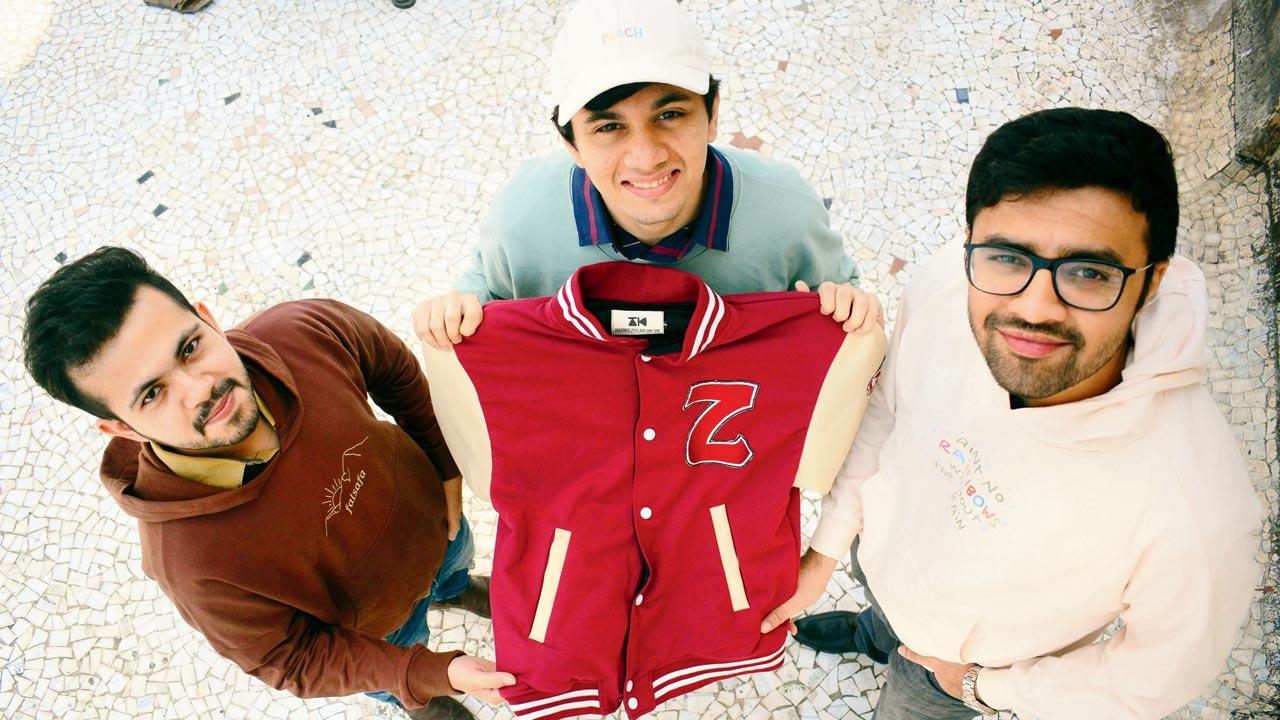 (From left) Jinay Vora, Milind Shah and Meet Gala started SuperClan, as they wanted to capitalise on the gap in the merchandising market. They handle Vishnu Kaushal and Tanzeel Khan. Pic/Sameer Markande
(From left) Jinay Vora, Milind Shah and Meet Gala started SuperClan, as they wanted to capitalise on the gap in the merchandising market. They handle Vishnu Kaushal and Tanzeel Khan. Pic/Sameer Markande
Singh says that The MerchBay is making a few hundred thousand units a month for 20 creators, who they plan to scale up to 80 by the end of this quarter. While there are no clear indicators of how much the influencer merchandising market is set to grow, the influencer economy, which has ballooned to Rs 900cr in India is expected to be worth Rs 2,200cr ($295.45m) by 2025 (25 per cent CAGR).
The bulk of this marketing is done on Instagram. YouTube even helps their creators sell merchandise—creators who have at least 10,000 subscribers have the option to sell merchandise through a deal that YouTube brokered with distributor Teespring, which will give them $1 off on each item. With more than 50 million independent content creators, curators, and community builders, this generation of micro-entrepreneurs is currently valued at $20 billion with estimates that it could grow to a $104.2 billion market in 2022—with $800 million in venture capital invested in these creator ventures year over year. Out of the 50 million creators, around two million are professionals, as reported by venture capital firm Signal Fire. One-third of about 1,000 children expressed the creation of online content as their dream, according to a survey by travel company First Choice in 2017. Research from the Lego Foundation showed that 58 per cent of the children respondents can create digital content on their own. Many of these are the ones buying the merchandise as well.
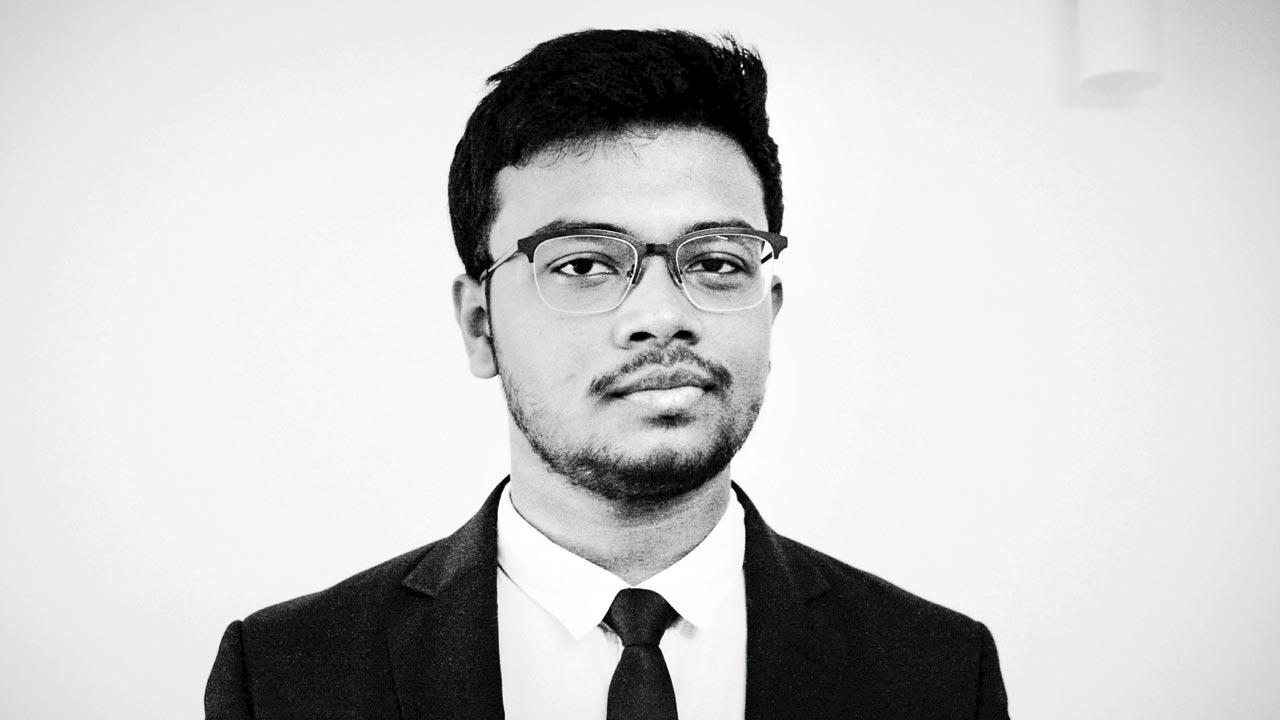 Sayantan Pan
Sayantan Pan
Influencer and creator Aanchal Agrawal, who has 239k followers, launched her merchandise line at the end of 2021, and it is an extension of her Instagram bio, “Ambassador of friend zone”. “It’s for all the people who aren’t successful in love! Everyone will relate to it. It’s like ‘Apna joke pehen ke chalo’,” she tells us. Her tees feature half hearts to show ek tarafa pyaar or unrequited love and the illustration of a game of knots and crosses. “I see it as a two-way street. Either they know about me and buy it, and if they don’t, once they buy it, they get to know about me!” says the Mumbai resident, who is originally from Indore. She launched a planner for 2022, on her merch partner platform Grow91.
“I am getting messages from Dubai and Australia to check if we can start international shipping!” she gushes. Sayantan Pan, the founder of Grow91, started the company last October, and says that they are growing 2x every month. They handle 25 creators on their rosters. “Merch is an unexplored market. At the moment, either it’s fronted by a brand or we have funny slogan tees. We want to look beyond. We have done some merch for Vishal Dayama, who was a senior writer at All India Bakchod. He has around 34,000 followers. Since he is a writer, his merch turned out interesting. For example, we punned on the word “Sur’why’ving’. He has sold 1,200 units.”
Musician and content creator Arjuna Harjai’s merch has his logo of a beating heartbeat on mugs and keychains. “A lot of people related to my life. Those who believed I lived a luxurious life, realised I was simple. I used to say things like, Hai Rabba in my posts and that too came to life in the merch. Currently, we are testing waters, but we may try something more fashionable later. Even if you are not following me, you may relate to the merch.”
If the young are buying merchandise, the young are creating it too. Three 23-year-olds—Meet Gala, Jinay Vora and Milind Shah—launched merchandising label start-up SuperClan in 2021. They are developing merch creators Vishnu Kaushal and Tanzeel Khan. The three friends noticed a gap in the market, and realised that they wanted to capitalise on the upcoming trend. SuperClan helps brands create products, and websites, where their merchandise is exclusively sold. “We are working on building an honest brand that is a reflection of my values as a creator. The image it takes is then an effect of the same!” says Kaushal of his merch, Peach By Vishnu, which has sweatshirts and tracks with slogans like, “ain’t no rainbow without the rain”. Gala feels that Indian YouTubers, and creators, need different avenues that help them create income. “It’s about recognising the opportunity, and then working with it.” As Shah explains, “The sky’s the limit, and international creators are making millions in merchandise every month.”
But SuperClan doesn’t just want to be known as a merch company. “That’s not sustainable. For example, Peach By Vishnu is not just for his followers. Even if a person doesn’t know Vishnu, they can wear something from the line. It’s eventually about creating a brand. And the fact that we can do this full time, means this business is here to stay.”
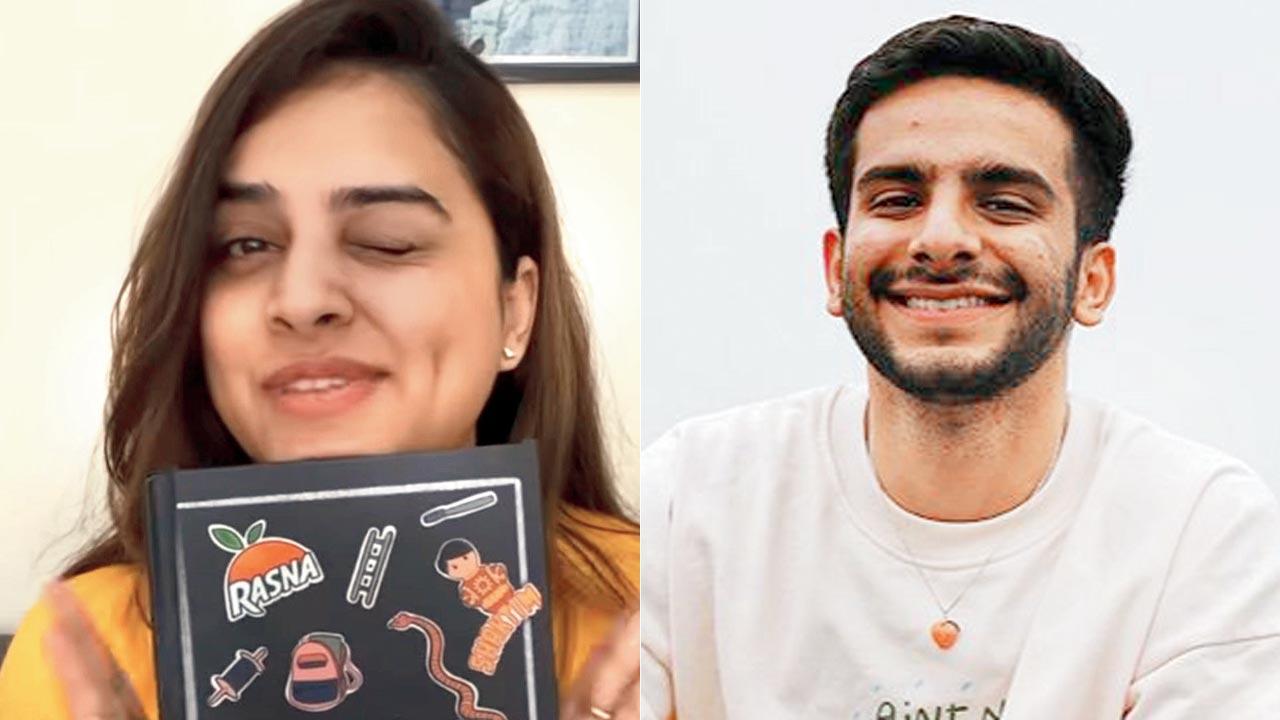 Aanchal Agrawal and Vishnu Kaushal
Aanchal Agrawal and Vishnu Kaushal
Aanchal Agrawal
City: Mumbai
Followers: 239k on Instagram
Merch Line: Aanchal Agrawal, which includes planners, hoodies and t-shirts
Vishnu Kaushal
City: Delhi
Followers: 631k on Instagram
Merch Line: Peach by Vishnu, which includes tracksuit sets
Rs 2,200cr
Estimated size of the Indian influencer economy by 2025
50 million
Number of creators in the world, out of which 2 million are professional
40MN
Units that The MerchBay’s manufacturing unit
has the capacity of producing every month
 Subscribe today by clicking the link and stay updated with the latest news!" Click here!
Subscribe today by clicking the link and stay updated with the latest news!" Click here!







